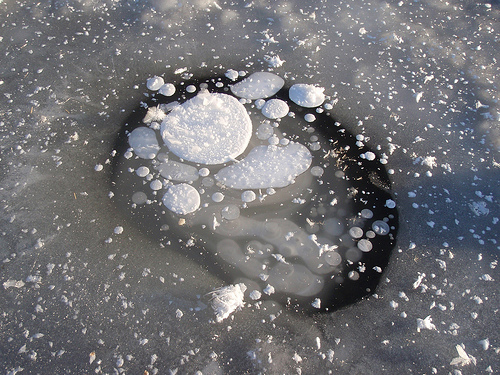
Frozen methane bubbles. (Gabriel Yvon-Durocher, Environment and Sustainability Institute, University of Exeter, flickr.com)
Microbes found in aquatic, wetland and rice-paddy ecosystems emit methane instead of carbon dioxide during respiration. As temperatures rise, the emissions from these organisms rise too.
A new study shows that methane emissions from aquatic microbes will increase with temperature faster than either respiration or photosynthesis of other living organisms. Methane is a more potent greenhouse gas than carbon dioxide.
An increase in the ratio of methane to carbon dioxide may have important consequences for the future of carbon cycle and may play a larger than expected role in climate change.
Original research paper published in the journal Nature on March 19, 2014.
Names and affiliations of selected authors

